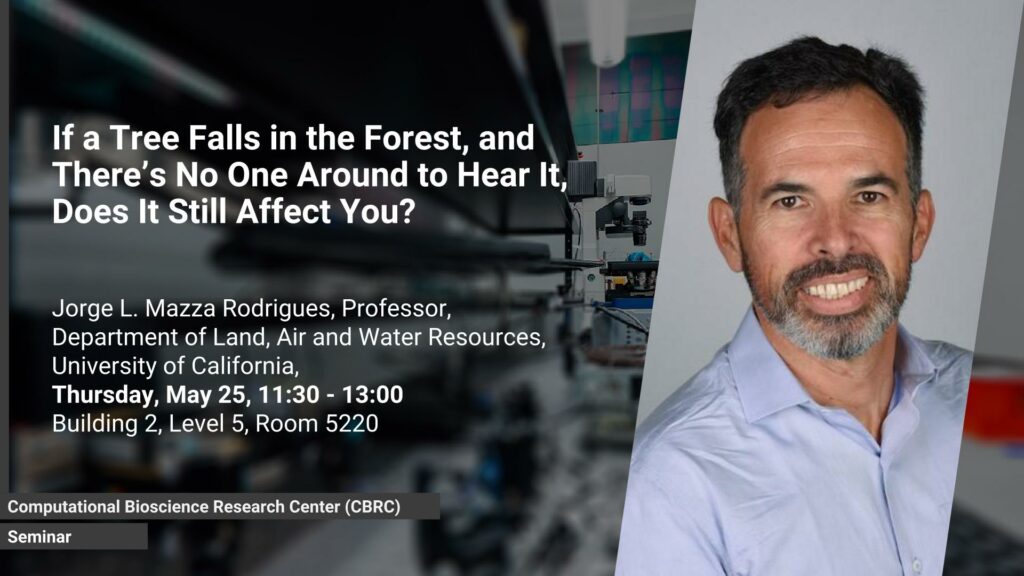
Thursday, May 25, 2023
11:30 a.m. – 1:00 p.m.
Building 2, Level 5, Room 5220
Host: Prof. Alexandre Soares Rosado
If a tree falls in the forest, and there’s no one around to hear it, does it still affect you?
By Jorge Mazza Rodrigues, Department of Land, Air, and Water Resources, University of California – Davis
Abstract
The Amazon rainforest, the largest forest ecosystem in the world, has continuously been threatened by land use conversion. Cattle pasture establishment is responsible for approximately 68% of deforestation with documented consequences to animal, plant and microbial diversities. Inventory studies broadened our understanding of biological diversity losses but have not been able to resolve questions about altered biogeochemical process rates and the associated nutrient cycling in this continental-size ecosystem. In 2008, the Amazon Rainforest Microbial Observatory was established to study the effects of forest-to-pasture conversion on soil microbial communities and the ecological services they provide.
Using a combination of high throughput sequencing of nucleic acids and in situ gas emission measurements, as well as soil physicochemical parameters, we observed increases in the process of biological nitrogen fixation with corresponding increased emissions of methane gas in pastures, which were reversed with rainforest regrowth. These biogeochemical processes were explained by elevated concentrations of labile carbon, measured as permanganate-oxidizable carbon. Our metabolomics results corroborated the above results with statistically significant increases of certain mono- and disaccharides. Metagenomic results indicated that genes for carbohydrate utilization were significantly more diverse and abundant in pasture samples relative to forest soils.
About the speaker
Jorge Mazza Rodrigues is a professor in the Department of Land, Air and Water Resources at the University of California – Davis. He graduated at the top of his class with an Agronomical Engineering degree from the University of Sao Paulo, Brazil, and earned dual Ph.D. degrees from Michigan State University. He was recognized as a UC Davis Faculty Leadership Fellow in 2022 and is currently a member of the First-Generation Faculty Learning Community. Research in his laboratory lies at the interface of soil microbial genomics and ecology, focusing on sustainable solutions for biodiversity maintenance in tropical forests and agricultural fields under increased world food demand. Jorge uses a combination of molecular and physiological experimental data to study microbial phylogenetic and functional diversification, and their consequences to global biogeochemical cycles. Results from this work have broad implications from basic research in evolutionary biology and ecology to applied aspects, such as conservation policies for natural ecosystems.
For more information, visit cbrc.kaust.edu.sa or email cbrc.info@kaust.edu.sa.

